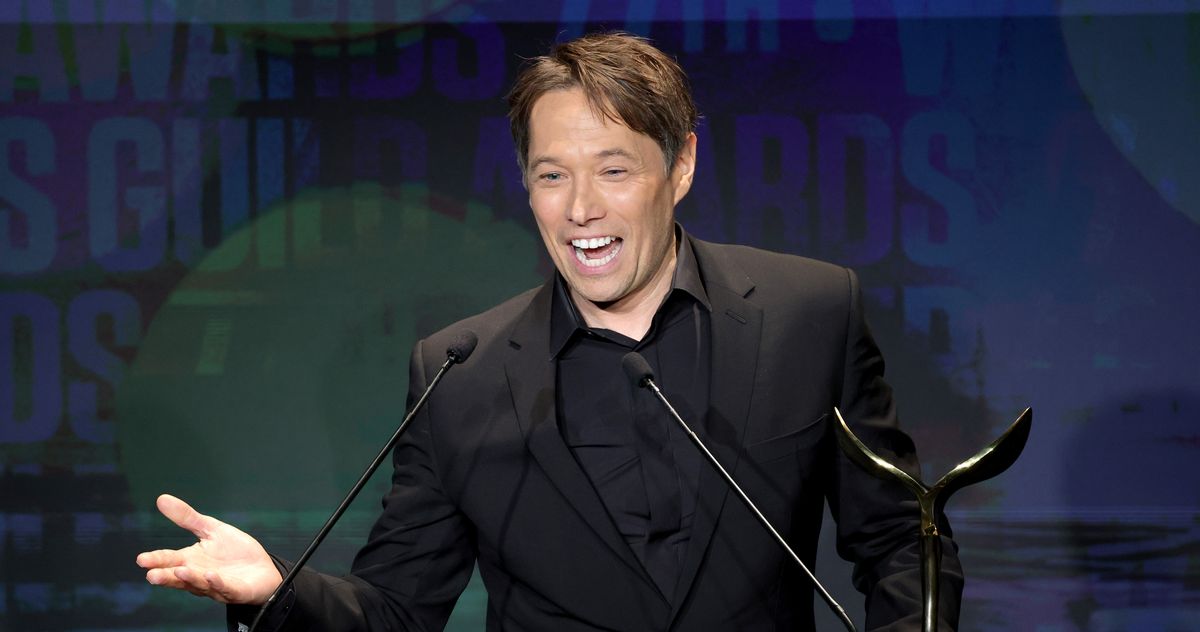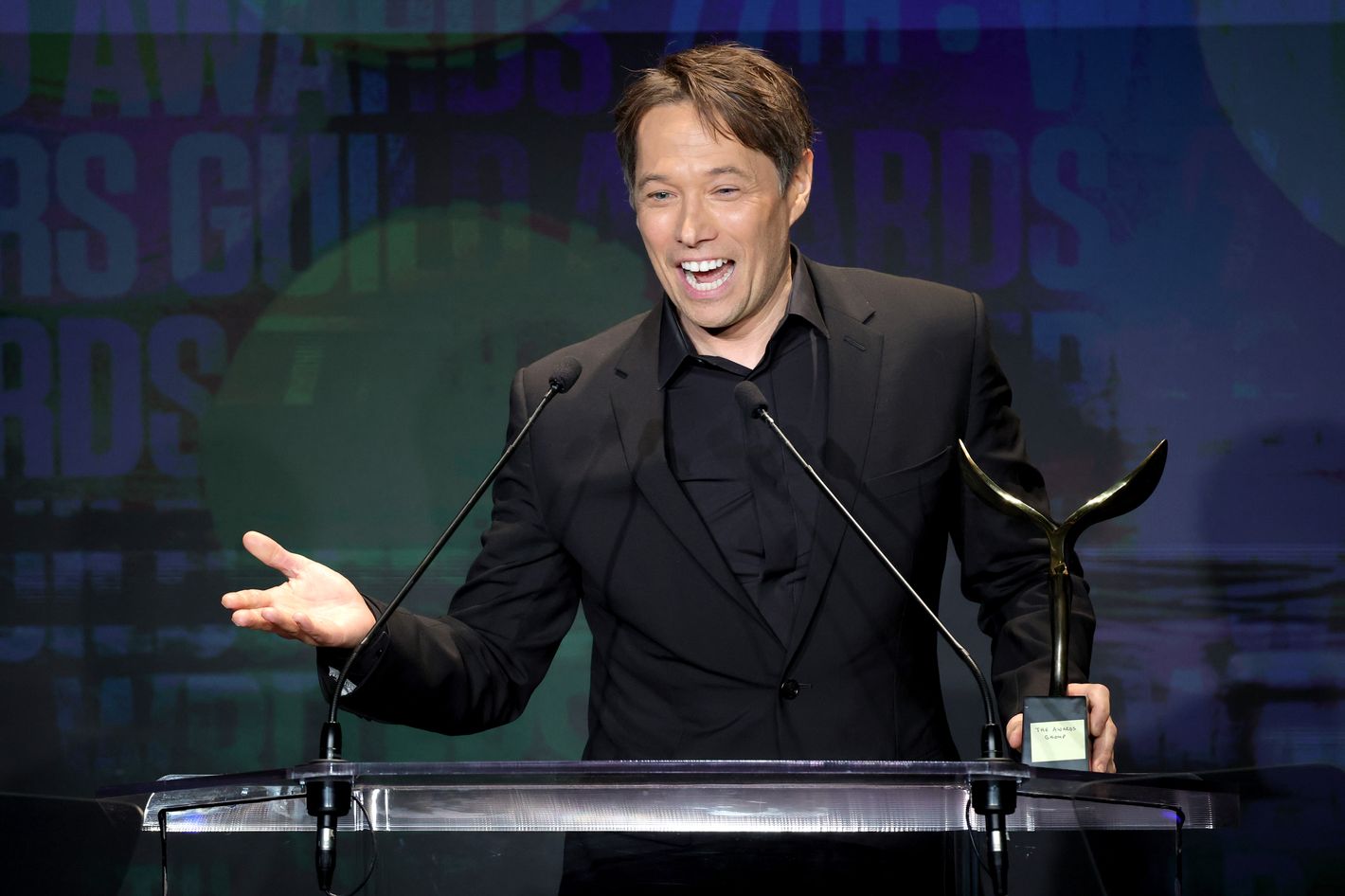Sean Baker’s Theatrical Crusade Marches On
“I don’t know if I want to continue making movies if it’s just for television,” Baker said at the WGAs.


“Right now, as filmmakers, we have to fight to keep cinema alive, which means making feature films for theatrical exhibition,” Sean Baker announced on the Cannes stage last May when Anora took home the Palme d’Or. “Watching a film at home while scrolling through your phone, checking emails, and half-paying attention is not the way, although some tech companies would like us to think so.” Baker has spent the ensuing months — as Anora picks up award after award — repeating his springtime call to action: that movies belong in movie theaters. He emphasized this at the New York Film Critics Circle dinner in January, and again at the Directors Guild Awards on February 8, where he was sure to thank Neon for guaranteeing an exclusive theatrical window.
On the heels of last year’s Barbenheimer sweep — two theatrical juggernauts — and ahead of an uncertain film landscape, the bigger conversation of this year’s awards season is what, if anything, filmmakers can do to make sure people see their movies, ideally in theaters. The complaint that the Oscars nominate movies “no one has seen” predates most of the streaming era, but these days, the crux of the issue comes down to where and how those movies are seen, and the extent to which directors have any say in that. Not all directors — let alone nominated writers or actors — allow awards season to be a form of political or artistic stumping, but Baker’s continued emphasis on this topic has lent this year’s awards season an ongoing urgency, one echoed by a number of his peers.
“First and foremost, I make my movies for the big screen and to be seen in theaters, with home entertainment being an afterthought,” Baker told Vulture at the Writers Guild Awards this past weekend. “I’ve been saying this when I’ve been in public because I would love to see filmmakers come together to do what we can do to expand the theatrical window, and therein we can support theaters — independent theaters and big chain multiplexes, it doesn’t matter what. Right now, they’re at risk of going away, and I don’t know if I want to continue making movies if it’s just for television.”
Spending an afternoon at the movies does not sound like a protest, but other writers and directors are starting to feel like it is. “I don’t think there’s a filmmaker you’d meet who wouldn’t say that part of why we fell in love with filmmaking when we were kids was because we loved going to the movie theater and the community that comes together when you’re sitting in the dark together,” Nightbitch director Marielle Heller said. Across her career, Heller has been lucky enough to have her films released theatrically. “Post-COVID, there’s an even greater need, I feel, to remember what it’s like to be around other people,” she added.
“From a formal standpoint, our film looks better on the big screen, and the immersive sound design we created is so important,” said Joslyn Barnes, who produced and wrote Nickel Boys alongside director RaMell Ross. That Nickel Boys struggled at the box office despite its pedigree speaks to the dire situation of moviegoing even when a movie intended for the big screen makes it there. The filmmakers at the WGAs, however, took their own work out of the equation. These were calls for solidarity, not just promotion. “From a political perspective, it’s really important for people to see each other in person. There’s less and less public space for people, and it’s essential in a participatory democracy to actually gather. That’s something that’s being eroded and undermined culturally and politically and legally,” Barnes added. That erosion slowed, just a little, when she took the stage less than an hour later to accept the award for Best Adapted Screenplay, as the crowd thrilled for the underseen film’s enormous win.
Related








